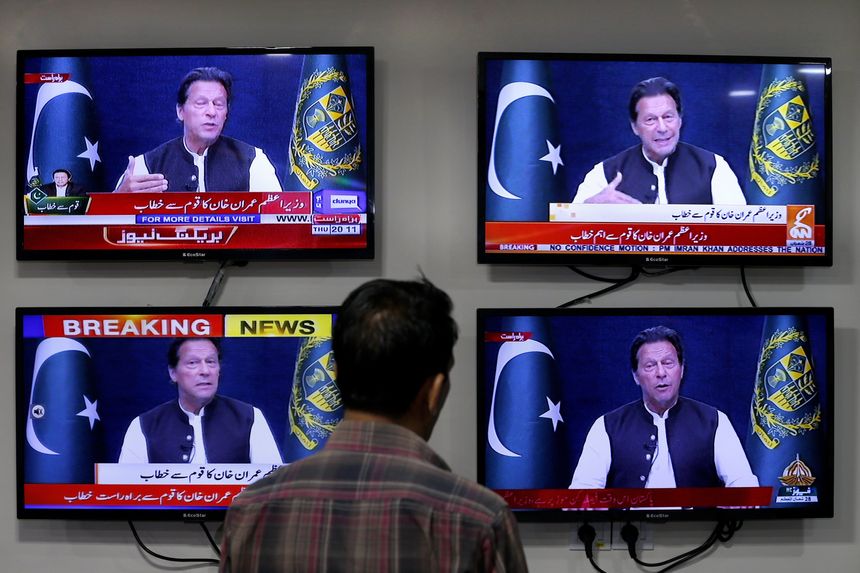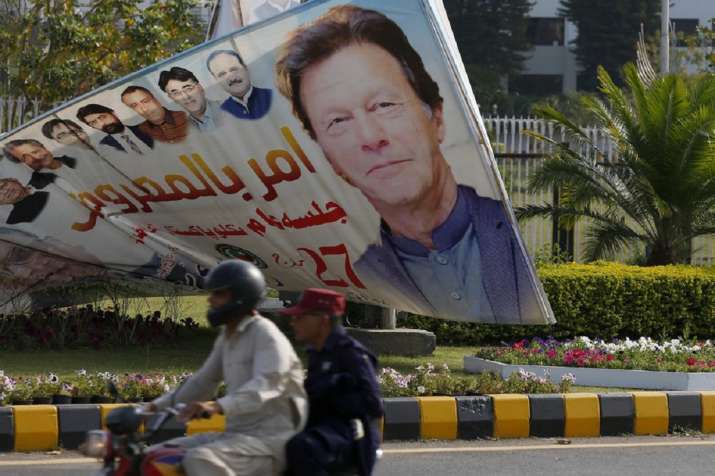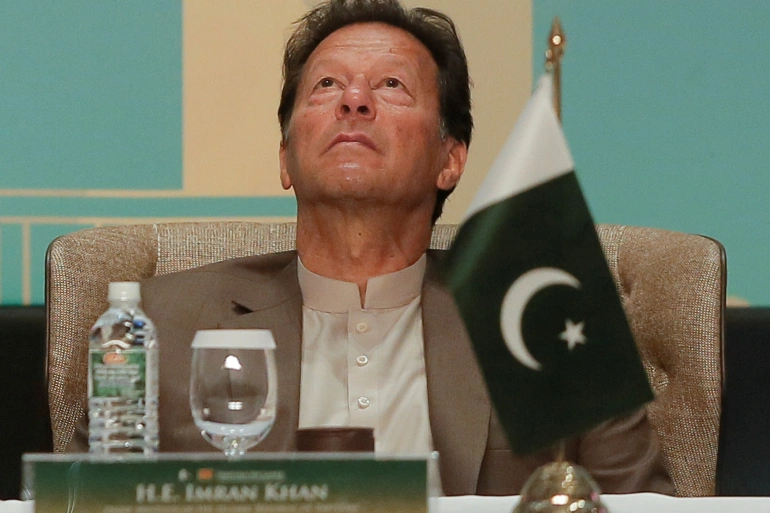On Sunday, the Deputy Speaker of the Pakistan National Assembly deemed the no-confidence resolution against Prime Minister Imran Khan unlawful.

Qasim Khan Suri, the Deputy Speaker of the Pakistan National Assembly, denied a no-confidence resolution against beleaguered Prime Minister Imran Khan, saying it violated Article 5 of the Constitution.
After opposition parties filed a no-confidence motion against Speaker Asad Qaiser, Suri presided over the key session.
In the National Assembly, Pakistani minister Fawad Hussain remarked, “Unfortunately, this is an effective operation for regime change by a foreign country.”
Imran Khan, Pakistan’s Prime Minister, stated, “I’ve written to the President requesting that the assemblies be dissolved. Elections should be held in a democratic manner. I urge Pakistanis to get ready for the next elections “after the dissolution of the National Assembly.

“I applaud the Speaker’s decision on behalf of all Pakistanis.” The motion of no confidence was a foreign plot against us. After the no-confidence motion against him was defeated in the Pakistan parliament, the PM remarked in his speech to the nation, “Pakistan should determine who should lead them.”
The Opposition parties need 172 members of the 342-member National Assembly to depose Khan, and they have already claimed 177 votes, much more than the required number.
On March 8, the unified opposition filed a no-confidence motion, setting in motion a series of events leading up to the election day, as well as a surge in tensions owing to Khan’s belief that he was being targeted as part of a “foreign plot” including prominent opposition figures.
Khan, 69, called on his Pakistan Tehreek-e-Insaf (PTI) supporters, particularly the young, to organise “peaceful protests” on election day to reject the plot and assembly process to destabilise the government.
He had called the breakaway legislators “traitors” and claimed they would be labelled as such for the rest of their lives as he begged with them to return and stop the Opposition from overthrowing him.
Khan, who had previously advised his party’s legislators not to attend the no-confidence vote, has now instructed them to take part in the proceedings and defend their prime minister vehemently.
Khan, who came to power in 2018 on the promise of creating a “Naya Pakistan,” is at a crossroads in his political career, as his Pakistan Tehreek-e-Insaf (PTI) party has lost its majority. Two of his associated parties also abandoned him and joined the ranks of the resurgent Opposition.











